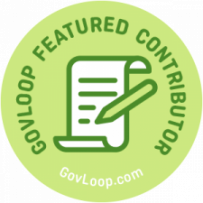
When COVID-19 first shut down the world, it brought uncertainty and budget constraints. In local governments, professional development was one of the first budget items suspended. It’s understandable – travel was discouraged, and we didn’t know how severe or long the shutdowns would last.
But professional development is how we stay aware of changes in the field of community engagement. When we weren’t able to attend trainings and conferences, we lost our chance to learn how other governments are interacting with their communities. Comparing notes with peers is absolutely vital for us to stay relevant and effective in our community engagement efforts.
If your goal is to stay up to speed on trends in public participation and community engagement, vendor calls can be your connection to the larger community engagement practice.
So how can public employees stay aware of industry changes when professional development is not an option?
What if I told you that there were experts out there, waiting to educate you in engaging your community? And they’ll do it for free!
The heart of a teacher
When “Community Engagement” is in your job description, chances are you get a few phone calls every week from potential vendors. They have a killer bit of software, an all-in-one platform, or a new app that will revolutionize your outreach efforts. These vendors can be your pipeline to free education about other communities’ efforts.
If your goal is to stay up to speed on trends in public participation and community engagement, vendor calls can be your connection to the larger community engagement practice.
Dave Ramsey, host of a nationally syndicated financial advice talk show, offers a recommendation when hiring a professional:
When getting help with money, whether it is insurance, real estate or investments, you should always look for a person with the heart of a teacher, not the heart of a salesman.
This advice applies to our situation as well. As we’re exploring options for spending our community’s money on engagement tools, we can benefit from reframing our discussions with vendors. We can talk about how other communities are seeing successes or challenges with their product. We should expect salespeople (at least, those with the heart of a teacher) to help us understand what’s going on in other communities.
Integrity
Now, I wouldn’t recommend that community engagement staff should lead on a salesperson falsely, or waste a vendor’s time when you’re not interested in a product. How can you ethically use the sales call to improve your awareness trends in community engagement? I have a few tips:
- Tell the vendor early in the call whether you’re in the market or not. If you’re not in the market, say so. A salesperson with the heart of a teacher might still want to educate you on their product. Even if you’re not able to buy right now, you might learn more about the community engagement field by learning about their product.
- “We’re not looking to buy now – we don’t have a budget for this – but I’m happy to have you teach me about it for future consideration.”
- Ask about the use of their tool in other communities. You have someone on the call who works with other governments. They likely have interesting stories about how their tool is being used elsewhere.
- “I see that you’re working with [other community]. How did they use the system on their [big project]?”
- “Who can I contact in [other community] to learn more about that project?”
- Focus on the processes that the tool facilitates, not just the tool’s features. This is to understand what they’re selling, and also to understand the general methods of engagement available to you. Many features in constituent engagement platforms are simply digital equivalents of public participation techniques that you already use. Asking about the process that the feature facilitates will help you understand the potential impact of the platform being pitched.
- “I see that this system gathers email addresses. Is that to send newsletters about the project, or just for logging in?”
- “So does this system collect upvotes like a dot exercise, or does it do something different?”
- Thank them for the opportunity to learn. Often, the sales person will close their presentation with a phrase like “So, what do you think our next steps are?” This is your opportunity to reiterate that you’re mid-budget, you’ll have to make a pitch up your chain, or you’re happy with a competitor’s product. Those are all fine – you need to be honest.
- “Thanks for giving me this demo. I see some benefits to your product. I’ll keep these features in mind as we review our contracts for the next time we review [present product]. Let’s keep in touch. How about three months?”
We’re fortunate to be in an industry that is largely about collaboration. It’s been a rough few years without conferences and training events to keep us up to speed. But there are ways for us to keep learning and growing in our community engagement practice.
So long as you’re clear and honest about your intentions for staying on the call, salespeople can help you re-establish that connection to the larger community engagement community.
Jay Anderson is responsible for digital engagement and public processes at the city of Colorado Springs. Jay holds an MPA from the School of Public Affairs at the University of Colorado – Colorado Springs, where he also serves as the Chair of the Dean’s Community Advisory Board. Jay focuses on the point of engagement between the community and its institutions, creating programs that give a voice to people who want to have an impact on their government.
Interested in becoming a Featured Contributor? Email topics you’re interested in covering for GovLoop to featuredcontributors@govloop.com.


0 Commentaires